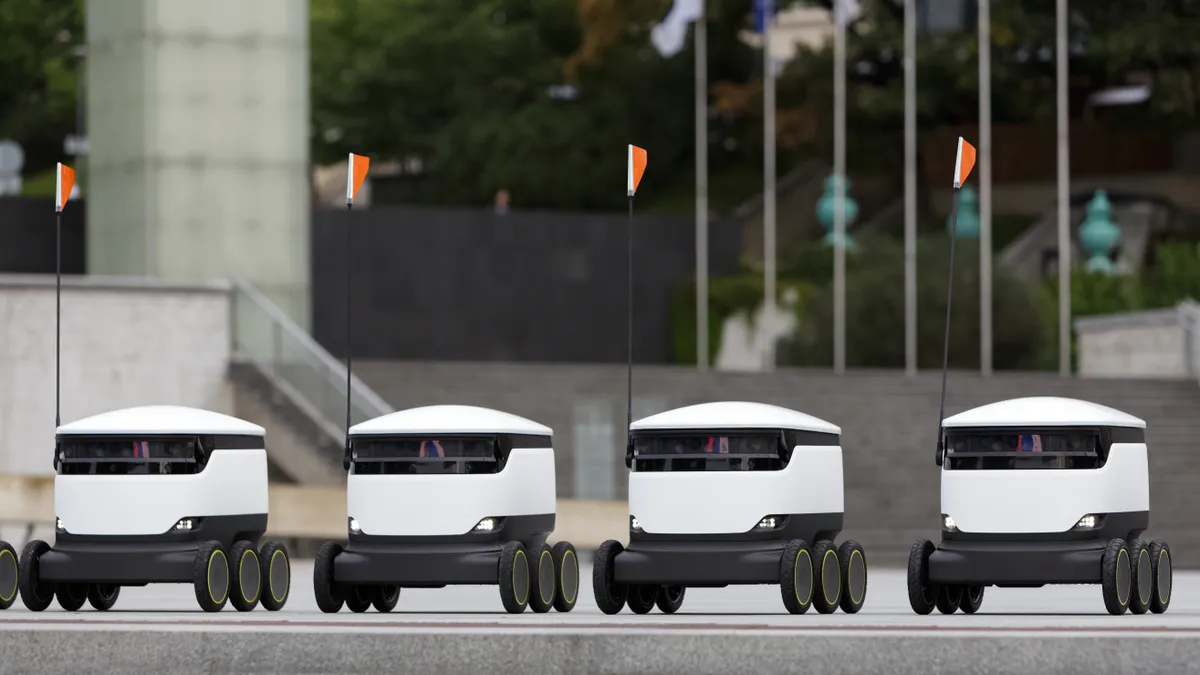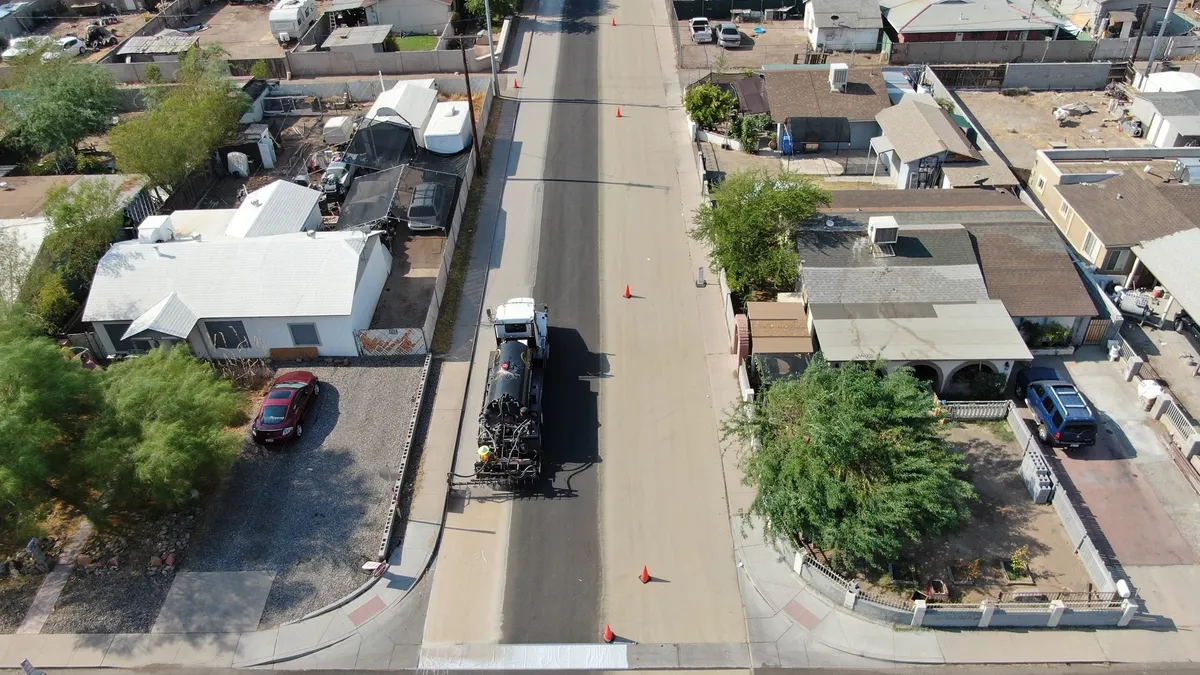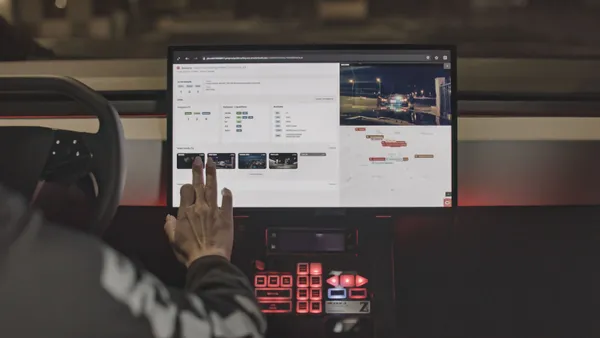Dive Brief:
- Delivery robots could become more widely-used on the streets of Washington, DC after the DC Council passed a bill permitting further deployment, the Washington Business Journal reports.
- After a pilot program that began in 2016, only one company, Starship Technologies, has taken advantage. The new law would remove geographic restrictions on operations, enter the city’s central business district and have more than five robots on the street at once.
- The legislation — crafted in part by Starship — still requires the approval of Mayor Muriel Bowser, D, and Congress.
Dive Insight:
Starship introduced its two-foot-tall robots two years ago — robots engineered to deliver small parcels and food within a two mile radius, trackable by mobile device — and the Business Journal reports the program could start expanding as early as this fall. Although the path appears to be clearing for expansion, the pilot program was not without incident. WTOP reports the District Department of Transportation (DDOT) received reports of three incidents of cars striking the robots, but that in each case the robot had the right of way and the car failed to yield.
Expansion means that more human handlers will be needed in the busier areas of the city, as while they are completely autonomous they need monitoring by humans for factors beyond their control, including vandals and cars turning right on a red light. Although the data so far suggests the program has been a success. StateScoop reports the robots have already made more than 7,000 deliveries, although Starship has not yet produced a comprehensive report on the program’s progress.
And DDOT sees the benefits of the robots to alleviate traffic congestion caused by large delivery trucks and their emissions. "Further, PDDs [Personal Delivery Devices] are mapping our sidewalks as they proceed on their delivery route and gathering data that could be valuable for DDOT’s general maintenance operations,” DDOT testimony to DC Council last year reads.
The Business Journal reports Starship has big plans to expand the service, which currently partners with DoorDash and Postmates. While the service operates in six other states in some form, David Catania, head of public affairs for Starship in the United States, said he expects the company to add more office space in DC and partner with local colleges, as well as exploring moving into some of the nearby counties in Maryland.
Robotic delivery services have already been gathering popularity elsewhere in the world, although Vikrum Aiyer, head of global public policy for Postmates, said they are sometimes faced with people "yelling about robotic delivery, taking over our streets."











